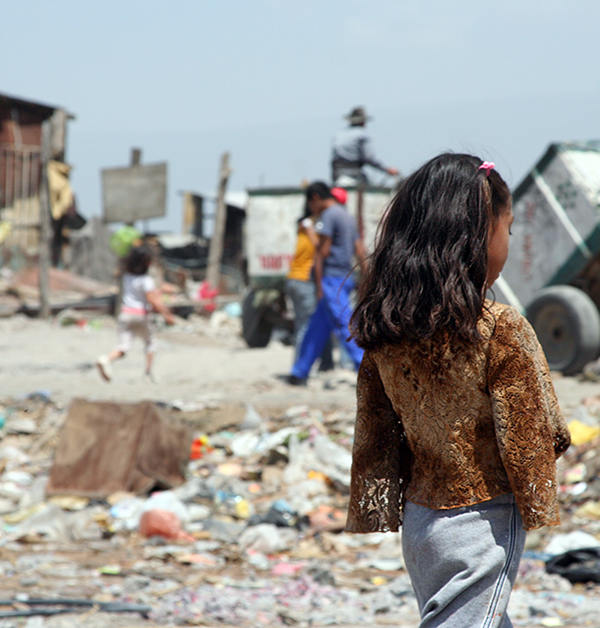
NCBiotech-Supported Duke Study Shows Genetic Threats of Impoverished Childhood

Children growing up in impoverished surroundings develop genetic changes in adulthood that are typically associated with exposure to tobacco smoke and other pollutants.
That’s the finding of a Duke University-led multi-decade study of 2,000 children born in England and Wales.
The researchers have just published their findings regarding the possible impact of neighborhoods on long-term health. They show that children who were raised in socioeconomic disadvantaged neighborhoods appear to have distinct epigenetic differences from their more advantaged peers.
“These findings may help explain how long-term health disparities among communities emerge,” said Aaron Reuben, a Ph.D. candidate at Duke who was the study’s lead author. “They also tell us that children who look the same physically and are otherwise healthy may enter adulthood wired at the cellular level for different outcomes in the future.”
The North Carolina Biotechnology Center supported the study’s research via a $199,000 Institutional Development Grant awarded in 2016 to Gregory Wray, Ph.D., professor of biology and evolutionary anthropology and director of Duke’s Center for Evolutionary Genomics in the Institute for Genome Sciences & Policy.
NCBiotech’s grant helped the Duke Center for Genomic and Computational Biology purchase a crucial upgrade for its HARDAC (High-throughput Applied Research Data Analysis Cluster), enabling completion of this and other research projects. HARDAC is high-performance computing equipment designed for computational genomics. It allows researchers to analyze very large genomics data sets in biological, biomedical and clinical research studies.
“It is exciting to see the outcomes of studies that have benefited from our grants,” said Susan Lankford, Ph.D., director of Science & Technology Development at NCBiotech. “We are proud that funds used to upgrade HARDAC contributed to the success of this long-term epigenetic study.”
Possible link between childhood neighborhood and adult health
According to the study, children who grew up in disadvantaged communities had differences in their genes previously linked to chronic inflammation, exposure to tobacco smoke, outdoor air pollution and lung cancer than children who grew up in advantaged neighborhoods.

The study concluded that as a result, the children from poorer communities could be at greater risk for health challenges later in life. The study’s results were published in a JAMA Network Online article, “Association of Neighborhood Disadvantage in Childhood with DNA Methylation in Young Adulthood.”
While traditional genetics describes the way DNA sequences in our genes are passed from one generation to the next, epigenetics describes passing on the way genes are used. Part of how epigenetics works is by adding and removing small chemical markers to DNA. The markers provide information to genes about whether they should be switched on or off. DNA methylation is one type of epigenetic modification that can silence genes.
The study’s researchers measured several aspects of participants’ neighborhoods, including economic deprivation, physical dilapidation, social disconnection and possible danger. Data were gathered from local government and criminal justice databases, systematic observation of neighborhood conditions and detailed resident surveys. After the study participants turned 18 years old, the researchers analyzed the adolescents’ DNA methylation via blood draws.
The researchers say the study lends support to the hypothesis that gene regulation may be one biological pathway through which neighborhood disadvantage may lead to long-term health disparities.
